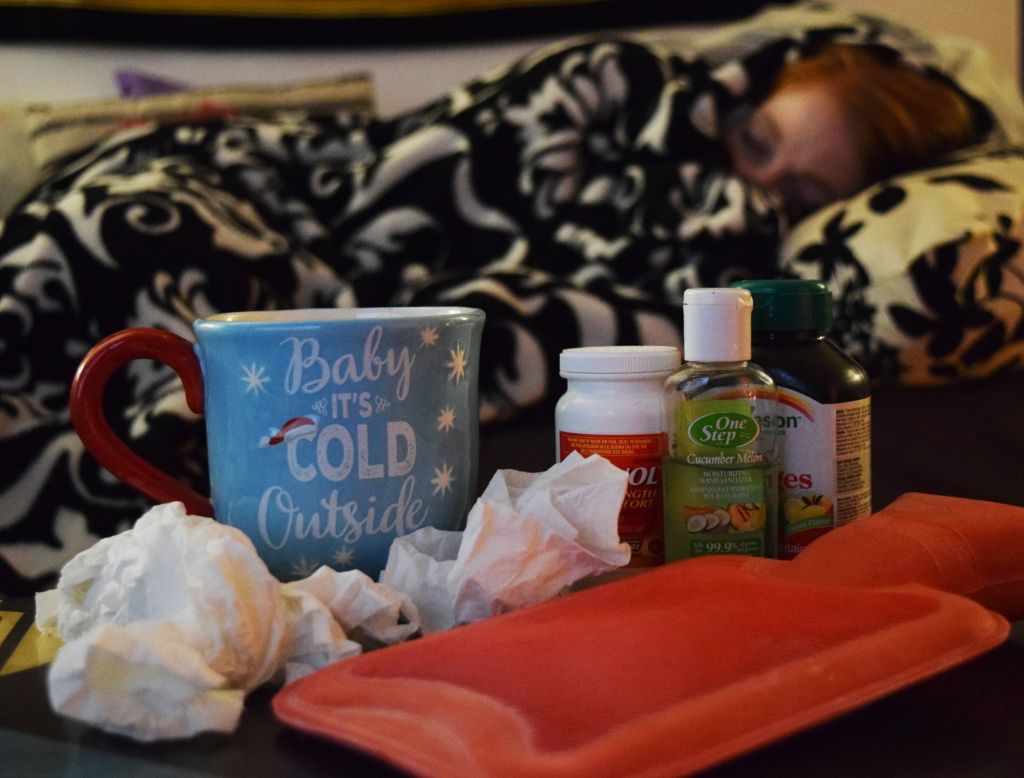Your head is throbbing, you’ve slept through two consecutive school days, no amount of fleece blankets can rid you of that straight-to-the-bone chill and your persistent fever is reaching ‘maybe I should go to the hospital’ levels.
While it may feel like death is imminent, fear not; it’s just the good old-fashioned flu.
For many Canadians, the flu is the harbinger of the holiday season. Is there any better way to ring in the new year than to give the gift of influenza to your entire extended family over turkey dinner?
“I had a fever on Christmas Day last year, it was awful,” said Brittaney Dean, a second-year business administration student. “So now I’ll wash my hands a little more and take vitamins. We’ll also wipe down door handles, counters and remotes at home when flu season comes around.”
If you’re currently fighting off the virus be sure to stay home, drink lots of fluids and get some rest. You should also try to avoid caffeine, alcohol and tobacco.
“School is a breeding ground for the flu because you have to go to class,” said Jaz Kerr, a second-year practical nursing student. “You can try to contain it — you don’t want to get other people sick — but it can’t always be helped.”
Free flu shots are offered seasonally across the country in an attempt to curb the spread of the virus. You can get the shot at your doctor’s office, a walk-in clinic and some pharmacies.
Algonquin’s Health Services and fourth year students from the Bachelor of Science in Nursing program offered vaccinations on Nov. 5, 6, 12 and 13 for those looking to keep the viral villain at bay. Over those four days, 2,199 students and staff took advantage of the service.
“We ran this clinic with the BScN students and Health Services in 2015 as well,” said manager of Health Services, Sara Jordan, via email.
Health Services also provided vaccines at their clinic in the college’s C-building on Nov. 21 and 29 for those who missed the initial dates.
Without vaccination, the flu can sometimes lead to pneumonia or respiratory failure, both of which can be fatal if left untreated. Even in a mild flu season, Health Canada claims influenza-related complications leave roughly 12,000 Canadians hospitalized and 3,500 dead.
Each year the vaccinations are updated to protect against whichever strains of the virus are circulating around the world. The World Health Organization reviews data collected by experts throughout the year to help determine which strains will be most prevalent. This year, vaccinations contain two A strains (A/H1N1 and A/H3N2) and two B strains (B/Victoria and B/Yamagata). The A strains make up 99 per cent of this season’s reported cases.
In 2017 there were 64,403 confirmed cases in Canada, including 302 deaths, according to the Public Health Agency of Canada’s FluWatch, which keeps weekly reports of changes in flu activity across the country.
So far this season, between Aug. 26 and Nov. 24, there have been 3,155 reported cases in Canada, with 26 per cent of those affected between the ages of 20 and 44.
<iframe width=”800″ height=”450″ src=”//embed.chartblocks.com/1.0/?c=5c081d533ba0f630698a89ea&t=b4d21ed0fab7824″ frameBorder=”0″></iframe>
Even if you don’t care about getting sick, PHAC urges you to get the vaccine anyway to help protect those around you that are vulnerable. Young children, people over 65, pregnant women and those with chronic health conditions are more susceptible to complications and hospitalization.
“The shot is used to try to prevent the spread of the flu, it doesn’t always work,” said Kerr. “It’s a preventative measure to protect vulnerable populations who are significantly affected by the flu, such as infants and seniors, because it can have more serious consequences for them.”
If you missed out on the free vaccines on campus, there are still clinics all over the city offering their services.
“It’s still great to get,” said Kerr. “Because you never know who you’ll get sick.”


